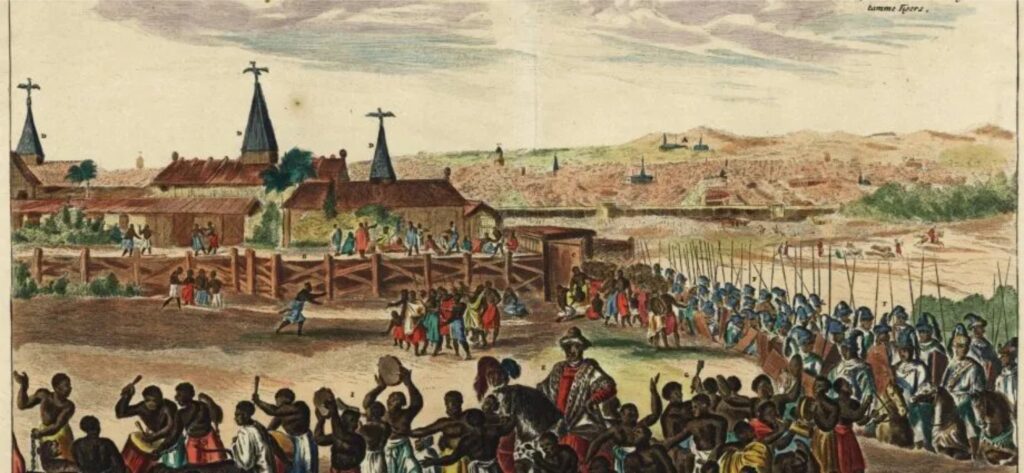Bayajida was not born in Hausaland. He came from distant lands, a wandering prince said to be fleeing conflict or seeking destiny. His journey led him through deserts and rivers until he arrived at Daura, a walled city ruled by a powerful queen named Daurama. The people of Daura welcomed him with caution. He was a foreigner after all, and trust was a rare thing in those times.
Bayajida was strong, courteous, and observant. But he noticed something strange about the city. Water was scarce, and the people lived in quiet fear. Every week, they fetched water from the sacred Kusugu well, but only on certain days. And only one person could go at a time. It was said the well belonged to a monstrous serpent named Sarki, who allowed water to be drawn just once per week.
The Serpent’s Rule
Sarki was no ordinary creature. It coiled deep in the well and rose only when it wished. It was ancient, cunning, and feared. Anyone who disobeyed its rule met a swift and mysterious end. Over time, the people of Daura learned to live with this arrangement. They called it tradition, even though it was rooted in fear. The queen herself abided by the serpent’s terms, offering water only on appointed days.
Bayajida saw the despair hidden beneath the surface. He could not understand how a city so rich in pride and history could be enslaved by a beast. So he made a quiet decision. With only his sword, his courage, and the spirit of a people he had grown to admire, he crept to the well one night. When Sarki rose to confront him, Bayajida did not flinch. A fierce battle followed, shaking the ground and waking the city.
The Birth of a Legacy
By morning, Sarki was dead. The people awoke to find the serpent slain, its long body stretched at the foot of the well. Bayajida stood above it, silent and steady. He had done what no one else dared. Queen Daurama, moved by his bravery, offered him her daughter in marriage. With that, Bayajida became part of the royal house and earned the people’s trust.
From this union came a new beginning. Bayajida’s descendants would become the founders of the seven original Hausa city-states, the Hausa Bakwai, shaping the political and cultural future of Northern Nigeria. His legacy would no longer be that of a wandering stranger but of a founding father etched into history.
Memory in Stone and Song
Today, the Kusugu well still stands in Daura as a symbol of the city’s liberation. Visitors gather there, not just to see the site, but to hear the tale that still echoes through generations. It is a place of pride, proof that legend and reality often walk the same path.
The story of Bayajida lives on in festivals, folktales, and classroom lessons. It reminds people of a time when courage overcame fear and one man’s actions changed the fate of a people. Through song, storytelling, and cultural pride, his name continues to live, not just as myth, but as memory.
References
- Bayajida and the Origins of the Hausa States https://www.britannica.com/place/Daura
- The Legend of Bayajida (National Commission for Museums and Monuments Nigeria) https://ncmm.gov.ng/bayajida-legend
- Myths and Legends of Northern Nigeria https://www.researchgate.net/publication/327548178


